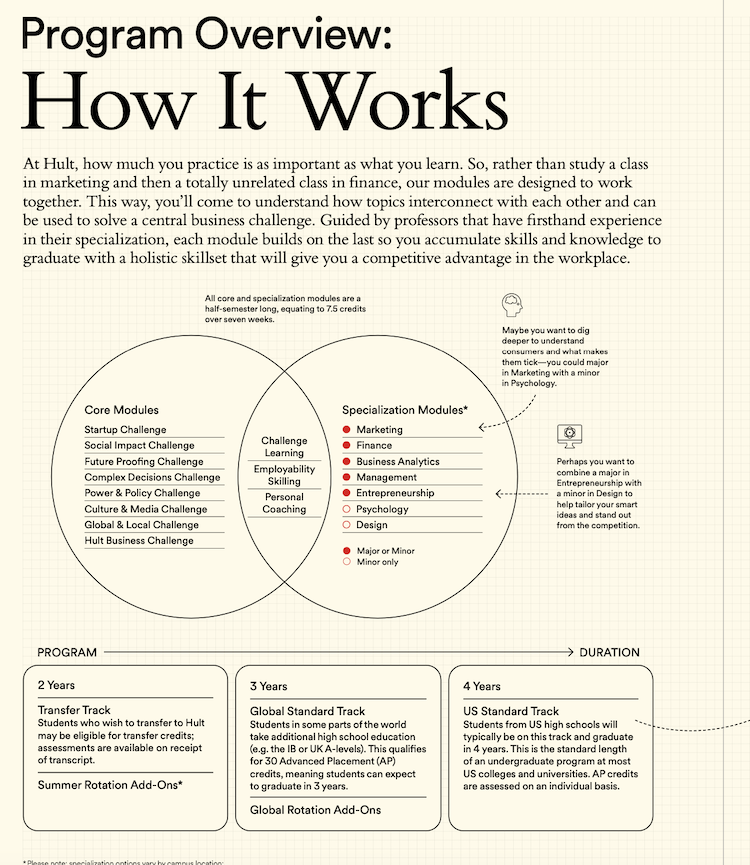
Hult International Business School
For someone who earned a doctor of philosophy in physics at Cambridge University, Matt Lilley is a remarkably pragmatic guy.
When he was named president of Hult International Business School in May of 2022, he brought with him a resume filled with practical business experience from his time as CEO of Africa for Prudential to his earlier stints at Lehman Brothers and the Boston Consulting Group.
So it may come as little surprise that Lilley has remade Hult’s undergraduate business program, making sure it provides students with the basic skills and tools to succeed in a business career.
‘WE JUNKED THE OLD PROGRAM, TOOK IT APART, AND REBUILT IT’
To Lilley’s way of thinking, most business schools are too preoccupied with knowledge and not focused enough on giving students the tools and frameworks they need to get work done in the real world.
To do so, Hult has reimagined its approach to teaching undergrads, putting students through three challenges a year, 15 during their overall educational experience. The emphasis is on doing, rather than sitting and absorbing lectures from PhD professors who may be more interested in their scholarly research than teaching.
“We junked the old program, took it apart, and rebuilt it,” he says. “Instead of a having a module on finance or strategy, the program is a series of business challenges that students need to solve.”
‘BUSINESS EDUCATION HAS TO MOVE IN THIS DIRECTION’
Why such a radical change? “Employers are crying out for skills and our program wasn’t teaching skills. It was teaching knowledge. Skills are all about practicing and we get much better when we practice.”
Behind the change, launched last fall, is a fundamental difference of opinion with the deans and professors of most other business schools. “Business education has to move in this direction,” insists Lilley. “All education has been about imparting knowledge and knowledge is of diminishing use.”
Instead of a class on marketing followed by an unrelated class on finance, students are put into teams and tossed into one challenge after another. The faculty provide just enough basic instruction to help students accomplish the talk (see chart on how the new program works).
Lilley says he was almost fired from one of his first jobs at The Boston Consulting Group where he worked as a consultant from 2002 to 2004 because he was not trained for business skills and tools. He had joined BCG after doing being a post-

The new undergraduate curriculum for business undergrads at Hult International Business School
HULT NEVER PUTS SCHOLARLY RESEARCH AHEAD OF TEACHING
Instead of traditional class-based modules, believes Lilley, students need to learn to effectively work with others very different than themselves, to smartly communicate and explain things to colleagues and supervisors, to give and receive thoughtful feedback, and to “tell a good idea from a crap one.”
For Hult, a business school with 5,000 students on four campuses in Boston, San Francisco, London and Dubai, doubling down on the practical is an obvious strategy. After all, Hult is unlike most traditional business schools, with fewer PhD professors and greater reliance on teachers who have been in the world of practice.
“Our faculty don’t have tenure,” explains Lilley. “We don’t have people because they are great researchers and who teach because they want to do their research.”
At Hult, he adds, the focus is on practical and applied research; and research is never put ahead of teaching – the school’s best faculty are recognized for their teaching and how students rate and value them, according to Lilley.











Questions about this article? Email us or leave a comment below.